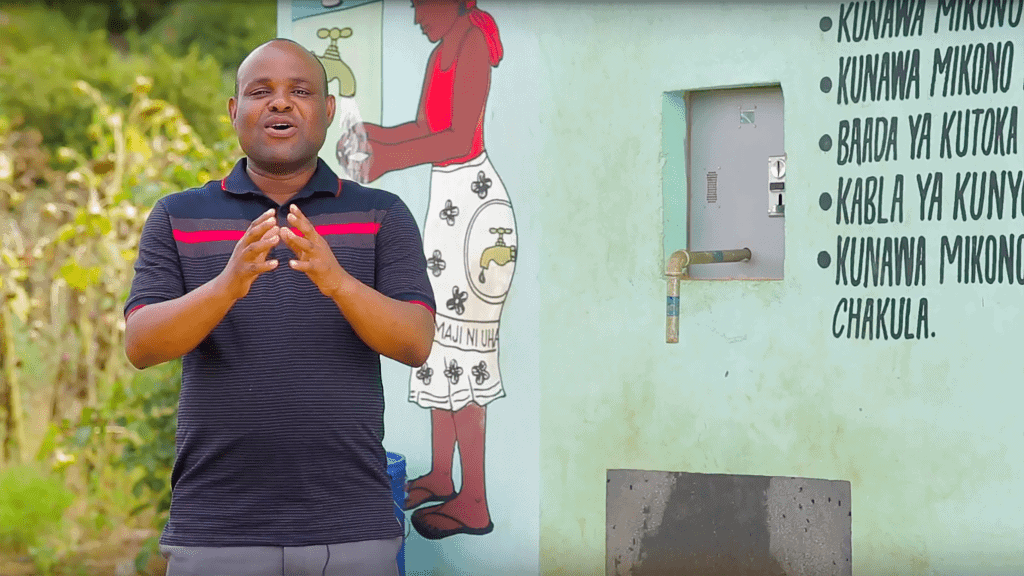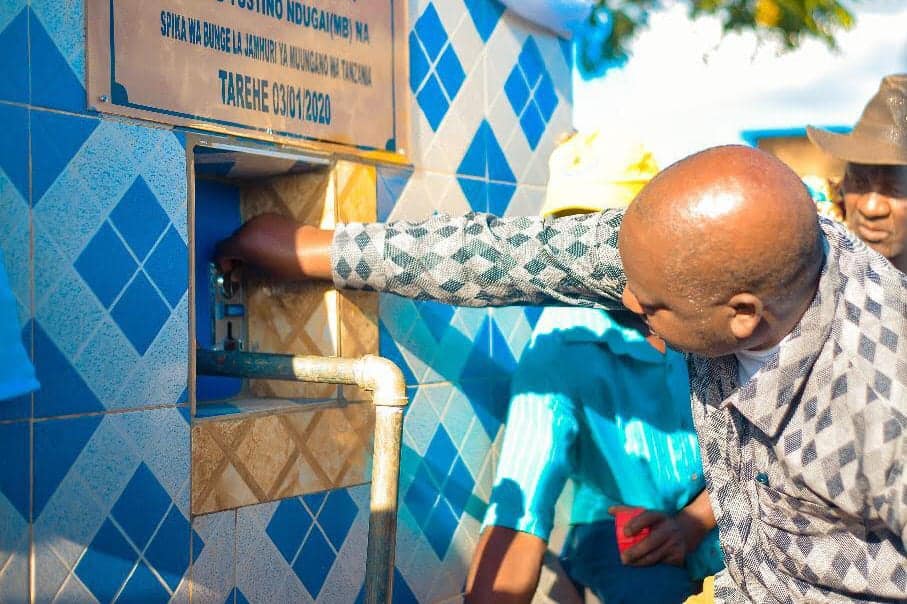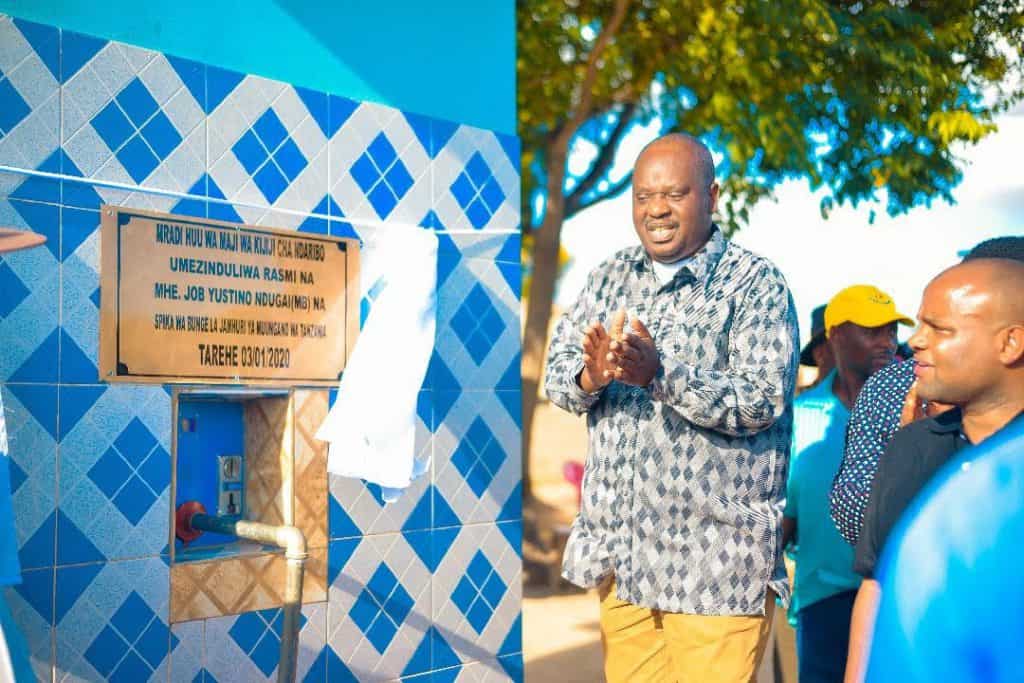Update Said: Completion of phase 2
Update Said:
Completion of phase 2
Phase 2 of this innovative project has been completed and much has been achieved and learned. Here you can read a summary of the results directly from our executing partner.
We had the ambition to reach 7,000 people. Now we know that 15,190 people got access to clean drinking water within 400 meters. That is a unexpected but very positive result to be proud of!

WHAT HAS BEEN ACHIEVED?
Three water vending machines were installed at Ngutoto Village as a pilot project for WASH and Learn programme. Since the installation of the machines, they have provided water to the community 24/7, while collecting data about the functionality of the machines, the amount of water dispersed and the income generated.
As the WASH and Learn programme does also promote healthy lives – an automated hygiene and sanitation promotion system was integrated in the machine, providing health messages alternated with audio fragments chosen by the people of the community. The machines are fully solar-powered.
Following the successful introduction of the water machines, MADE BLUE has made it possible that these machines have also been installed in the villages of Ndaribo, Mtanana and Mautya. Working towards a smart network of virtually connected water infrastructure – allowing for real time monitoring at a distance and shortening timeframes of spotting issues and following up on them.

Impact
Having the vending machines available 24/7 has enabled people to work on other economic activities without worrying too much about where they will get their water from. Women, who are often responsible for getting the water for the family, have more time to engage in other things such as participating in social gatherings, learning new things and participating in income generating.
The availability of water at Ngutoto dispensary has also improved the provision of health services for women who are there to give birth. The WASH and learn program has also ensured water availability as well as toilets in public primary schools – resulting in improved school attendance. The promotion of good hygiene and sanitation practices among community the members contributed to reduced communicable diseases and healthier people.
What’s next?
“As this was a new technology that was implemented in Rural Tanzania – the machines initially encountered some network challenges, which cause delay of getting data timely through distance monitoring system. These problems have been solved in the course of the programme.
The Kongwa district council, that is responsible for water and sanitation in the area where the villages are located, has shown interest to further upscale the technology. As a starting point, our local partner UFUNDIKO has now been invited to work towards a regional IT strategy for rural water supply.
And, we are only at the beginning of supporting Tanzania to provide water to everyone. The future plans should ultimately ensure that the water vending machine infrastructure is included in Village development plans and District development plans
The programme team will remain in place in the role of technical advisor on the installation of the systems and – if needed – the technical backstopping. UFUNDIKO is working together with the rural water supply ministry (RUWASA) – to promote IT in water management on a national level as well, and bring together all relevant stakeholders to work towards smart water provision for all.”
We are currently investigating phase 3 for this project. This phase will focus on extending to other regions and countries while taking into account all lessons learned and the technology that is now mature.

Lessons learned
Within the program, many lessons were learned, including:
- Community engagement in innovative project design ad implementation is important to ensure that project operations are in line with the wishes and needs of the community.
- Developing agreements that include clear roles and responsibilities of all stakeholders during- and post project implementation is key to embedding the new infrastructure in the existing systems.
- To anticipate unforeseen situation and to ensure all aspects of developing a water system are well addressed, it is important to assess financial-, institutional-, environmental-, technical- and social risks in advance and develop strategies to mitigate the risks in advance.
Said’s water vending machine
Said developed the Water Vending Machine: a super smart system that can provide safe drinking water using solar energy.
After a successful pilot in Nugototo Village (Dodoma region), he wants to expand his work to Ngomai. With that he reaches 7,000 people. But that is not his end goal. His mission is the same as ours: clean drinking water for everyone!
May be you want to read these updates too:
Update Said: IT and water
The upscaling of Said’s Water Vending Machines is unexpectedly successful and we still have to be patient. You can read about this here.
Read moreUpdate Said: Selma from Simavi explains
For this innovative project in Tanzania we work together with implementing partner Simavi. Project officer Selma Hilgersom explains in a video what it is all about.
Read more